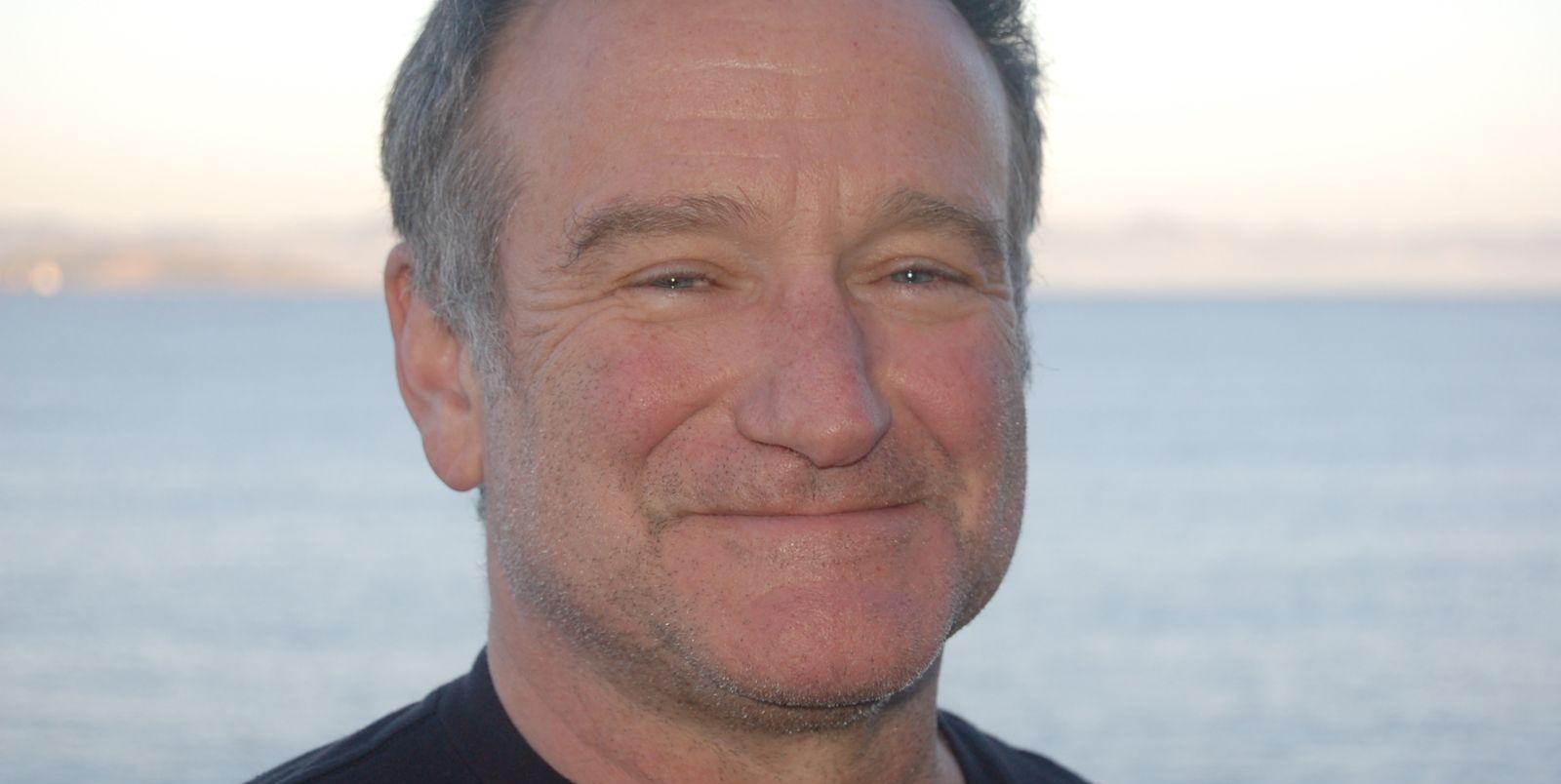In the summer of 2012, Robin Williams wrote a note on the cover of his book Twelve Steps with only a short sentence, "I want to help people be less afraid." ”
Two years later, he committed suicide at the age of 63, a brilliant life, a tragic ending.

Williams was known for his wit, genius, and ability to always smile, and in the last days of his life, no doubt, he was so frightened that he couldn't figure out why his clever mind was becoming a mess.
The fight against the fatal neurodegenerative disease, called Lewy body dementia, drained all his patience and energy. In fact, it wasn't until his death that his actor wife, Susan Schneider Williams, learned that he had Lewy body dementia.
Night at the Museum: The Secret of the Grave is Williams' last screen role, and on set he struggles to memorize his lines. Privately, the last months of his life were consumed by anxiety, paranoia, panic attacks, and insomnia.
"Good night, my lover," he told his wife on the evening of Aug. 10, 2014. His (suicide) death made headlines around the world.
In fact, Williams was never found to have Lewy body dementia, a diagnosis that was first known to his widow only when an autopsy was performed after his death. According to medical experts, this is one of the most serious cases they have ever seen.
Filmmaker Tylor Norwood contacted Schneider Williams to tell the world the truth about Williams, hoping to provide the truth and recollection of the great actor in the documentary Robin's Wish.
"What people know is not the truth, they just think they know," Norwood said. "When the autopsy showed that he had Lewy's body dementia, which had been so severe that no doctor had ever seen it, it undoubtedly proved that Robin was a genius, that his brain was very good, very strong, and that he had actually wrestled with the disease for a long time. Longer than anyone in theory, this is a story of great significance. ”
Norwood said there was speculation that "maybe he was on drugs again, or he lost all his money, and now it seems that these speculations are all wrong." In fact, they were reported when the autopsy results were announced, but the truth was a bit silent and didn't get more attention.
Susan recalls her husband calling her during a panic attack and becoming paranoid and unable to sleep in his final months. "If we can accurately diagnose Lewy's body dementia, that alone will calm him down," she said.
She hopes to make this documentary in order to help others, "Let's remind people of all the light and beauty he brings to the world." Oh, and by the way, everything you think you know about the end of his life is wrong. The truth is, the guy you like in the movie he plays, the real Williams, is better than that. ”
In Robin's Wishes, his neighbor recounts the kindness and ordinariness of the star, who always wanted to entertain and help people, whether it was a kid nearby or a soldier in a war zone.
"Everyone thought he must have been a sad clown (after his death)," Norwood said. "Actually, he was better than we thought. If you love him in the movie, then he will be better in real life. ”
According to the NHS, Dementia can cause hallucinations, confusion, fatigue and problems with comprehension, memory and judgment. There is no cure, and the average survival time after diagnosis is similar to That of Alzheimer's disease, about 6 to 12 years.
Lewy body dementia is the real "killer", a rapid and progressive disease. "I'm studying how Robin's brain is affected, and I realize it's the most devastating Lewy body dementia I've ever seen," the doctor said. There is hardly any area that is not affected. What surprised me was that Robin could walk or move, which was actually almost impossible. ”
"Without a cure, they can't even slow it down," the filmmaker said. "A diagnosis can only tell you one thing, and he's almost more valuable than anything else, and it makes you understand that what happened to you isn't your fault." It was the real tragedy of Robin's life, he didn't know, and it wasn't his fault. ”
The NHS of the United Kingdom says dementia is caused by clumps of proteins (Lewy bodies) formed within brain cells. These abnormal deposits are also present in Parkinson's disease and accumulate in areas that control functions such as thinking, vision, and muscle movement, interfering with the signals sent between brain cells. It is the second most common neurodegenerative dementia in the elderly after Alzheimer's, accounting for about 15-20% of all dementia patients.
Williams is one of about 1.4 million people in the United States who suffer from the disease. Before he died, he saw therapists four or five times a week and tried yoga in hopes of getting out of the situation, and he didn't understand that this was something that happened physically, not mentally.
Williams works as an alien, elf, or Peter Pan; from a desperate father to a nanny, or as an English teacher who urges students to make life extraordinary; as an Oscar-winning stand-up comedian, he's brought joy to tens of millions of people. I respect and miss him.
In fact, I was also confused about his suicide, once thinking that the happiest person in the world could not overcome depression and sadness. Today, I share his story, also to convey his last words. "I want to help people be less afraid."
Today, because of your story, Robin Williams, there's no doubt that all of us are a little less scared.